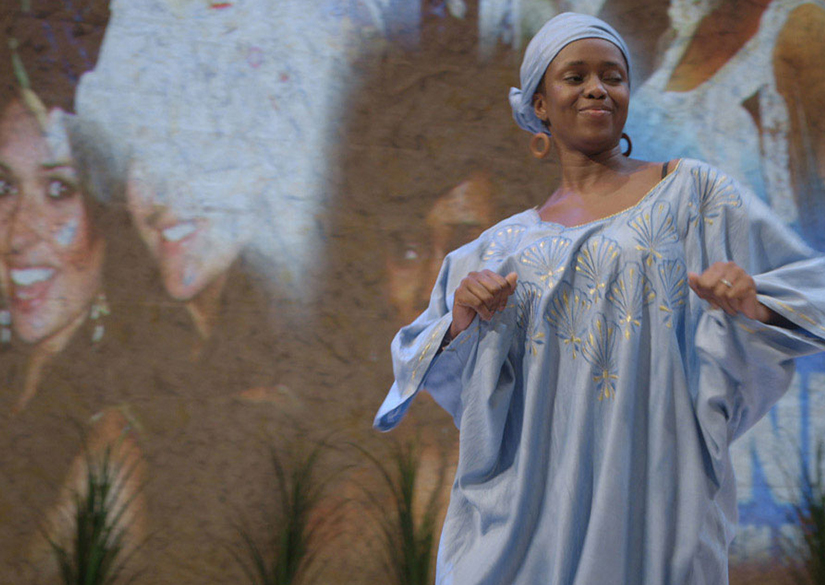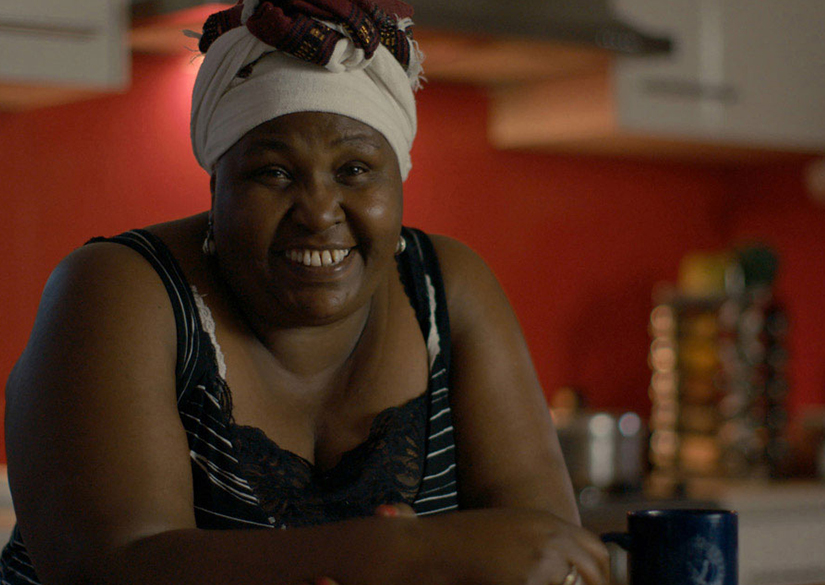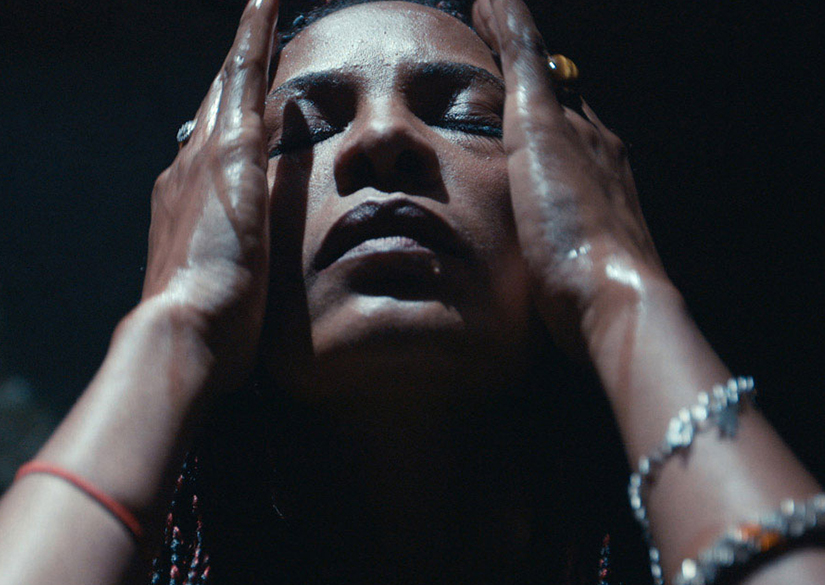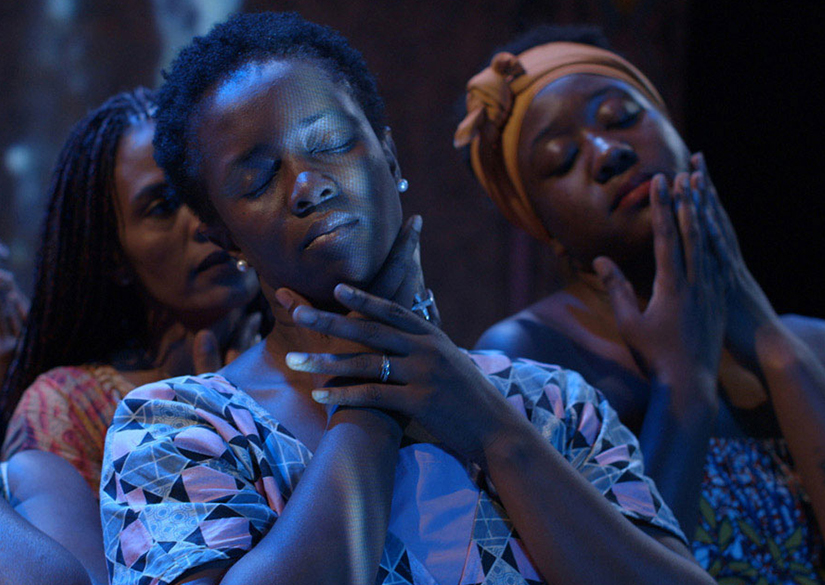FILM: SYDNEY FILM FESTIVAL @ CASULA POWERHOUSE : THE BAULKHAM HILLS AFRICAN LADIES TROUPE (M)
5 Aug 2016 | 7:30pm Film screening
Book TicketsThe Baulkham Hills Ladies Troupe is a celebration of the remarkable spirits of four African women survivors of sexual abuse, and the triumph of their improbable theatre troupe.
Four women fled from different parts of Africa to Australia in order to escape violence and abuse. They find a safe haven in Australia, but still they hold their pain silently within them. Until they decide to join a theatre group... and speak out. Under the nurturing guidance of theatre director Ros Horin, they collaborate to let their life stories be transformed into an extraordinary and joyously uplifting theatrical experience. This film charts their personal journeys from trauma to healing and public triumphs, as the Troupe’s show moves from a stage in western Sydney out to the world.
CAST
THE WOMEN
Aminata Conteh-Biger, Yordanos Haile- Michael, Rosemary Kariuki-Fyfe, Yarrie Bangura
Aminata Doumbia (the singer)
THE ACTORS Wanyike Mshila, Tariro Mavondo, Nancy Denis, Effie Nkrumah, Imat Akelo-Opio
DIRECTOR, WRITER and PRODUCER Ros Horin
| The Baulkham Hills African Ladies Troupe Pre-Show Dinner : Served from 6:15pm - 6:45pm |
|---|
African Chicken
served on a bed of rice and salad |
THE WOMEN
The Baulkham Hills African Ladies TroUpefocuses on the life stories of four former-refugee women who now live in Australia. Traversing four decades and four African countries, the film follows these bold and charismatic women work through their harrowing pasts to come to perform in front of sell-out audiences. Introducing:
YARRIE (20s ) grew up in a refugee camp in Guinea.
She was just seven years old when the Civil war broke out in Sierra Leone, and she was forced to witness atrocities that deeply traumatised her.
Writing poetry has been her emotional outlet and means of survival. She is now a poet, a songwriter, an inspirational speaker and performer ;wise beyond her years. Yarrie is at University studying International Relations and Development. She has also recently been made an Ambassador for Australia for UNHCR.
AMINATA (30s) from Sierra Leone.
She is the girl who was ‘too beautiful’ for her own good. All her friends used to say, ‘When the rebels come to Freetown, you will be the first they will take.’ And they did. She was kidnapped by a violent and drug-crazed rebel to be used as a sex slave for many months.
Aminata has not only survived, but she is now happily married and a wonderful mother to two beautiful children. She has also done something extraordinary. After barely surviving the difficult birth of her first child herself, she has now set up her own not-for-profit charity, The Aminata Maternal Health Foundation. Sierra Leone currently has the highest infant mortality rate in the world. The Foundation’s aim is to create more maternal health facilities in a country that has next to none, to give mothers and babies a better chance of survival back in Sierra Leone. Aminata is also a designated Ambassador for Australia for UNHCR, in the role of ‘an inspirational speaker”.
YORDANOS (40s) from Eritrea
She doesn’t know much about her early life. As a small child she watched her father kill her mother and then he abandoned her to fend for herself on the streets. That’s when her abuse started. Around 5 years of age, she was picked up by the Eritrean army to be trained as a child soldier and consequently experienced 15 years of constant violence and sexual abuse, till she escaped. She had no education. The army was the only life she knew until coming to Australia.
Despite having had no upbringing herself, Yordy is an extraordinary ‘natural’ mother, who is bringing up four remarkable children on her own. She is now also studying at TAFE to make up for the education she never had, and is searching out her future direction in life. She plans to write her own biography, and is keen to train as a counsellor.
ROSEMARY (50s) from Kenya
No one could guess at Rosemary’s dark secret. A horrific history of ongoing abuse by members of her own family, starting from a very young age.
‘Big mama Rosemary’ as she is fondly known, is a community leader, ‘a Living National Treasure,’ say the African community in Sydney. She has worked for many years with the NSW Police Force in western Sydney, as a community liaison officer. Rosemary is also the founder of The African Women’s Dinner Dance, a much-awaited event on the social calendar, where 500 African women from all over NSW, come out to dance the night away. Another initiative of Rosemary’s is an inspiring community exchange program between women refugees and migrants from various ethnic backgrounds and Australian countrywomen. The Australian women each host a ‘new Australian’ from an ethnic background in their homes for the weekend in country NSW.
DIRECTOR’S STATEMENT
This has been a passion project for me that has lasted over 5 years.
It started as something relatively compact and small, bringing a group of women together into a theatre workshop with the intention of devising a play out of material from their lives. But it became a transformative life changing journey for all of us involved, which took us from the immigrant suburbs of western Sydney to the main stages of London, and now out to the world.
For these were no ordinary women. Indeed none of them were actors; most did not even know what theatre was. These women were highly traumatised refugees from various parts of Africa, who had all suffered extreme sexual abuse and violence.
The person who set up this somewhat foolhardy and risky endeavour was me! I was an experienced professional theatre director who had only ever worked with professional actors and creative teams before; but in this instance I was willing to step out of my comfort zone into the ‘community’. I was fired by a need to do something about violence against women. My focus was on the women, not the perpetrators. How did women survive something like this? How did they reconstruct their lives? How do you move from victim to survivor? I wanted to use my skills as a creative storyteller to make a piece of theatre around this issue that would have an impact on audiences and get the conversations moving. I wanted to the film to open up a deeper understanding of the nature of the specific trauma that is rape.
Obviously in a delicate project such as this one, the process had to be every bit as important as the end product. Negotiating the sometimes conflicting needs of the double imperative of trying to create a powerful and eloquent theatre experience for audiences, in a way that would be empowering and healing for the women involved, and allowed them time to process their deep emotions of trauma; was indeed difficult. And I was of course largely ‘just feeling my way’.
The film charts the ups and downs of this project, the struggles and fear, the triumphant breakthroughs and epiphanies of self-realisation. It is in some ways like Humpty Dumpty. A story of the process of ‘putting yourself back together again’. The women and I, along with a group of other wonderful artistic collaborators, worked together exploring, listening, playing and talking with the women for over 2 years before we had our production ready for the stage.
After the huge success of our opening season at the Riverside Theatre in Parramatta, the show moved over to the inner city Belvoir Theatre and then on to the Sydney Opera House. Every season a sell-out, every show standing ovations, with audiences deeply moved and staying behind to talk. And then on tour to Nottingham and London, where THE BAULKHAM HILLS LADIES TROUPE performed at the iconic Southbank Centre, as a centre-piece of the WOW festival (Women of the World). And with each public triumph, another step forward for the women in finding their voice and freedom again.
However we always understood that performing and touring a theatre production could only have a limited life, and so we wanted to make a film that could travel out into the world, with no restrictions or boundaries. Shooting began, in parallel with the workshops in 2011, albeit somewhat on spec at this early stage. Justine Kerrigan, our cinematographer, was a fly on the wall in the rehearsal room, right through to the first 2 theatre seasons of the play in 2013. By then the transformations that were happening to the women through the process was clear; as were the struggles and major dramas. We had also seen the huge impact the play was having on audiences and we knew we had the elements of an exciting film! We certainly had something that was visually rich, moving as it did between stark verite footage, interviews, and the rich lushness of the theatre imagery.
In 2014, with the theatre show in recess, we had the time to focus entirely on the film. We were able to open out our shooting now to cover the rest of the women’s lives, outside of the theatre, and to explore the effects of what the women were doing, on their families and communities.
As with most documentaries, the biggest challenge was in the editing room; for this was a story with many strands. These included the women’s back stories of rape and trauma, the story of the making of the play and its launch into the world, and to a lesser degree my own story as the driver of this project as well as the very important women’s stories in the present. How to bring all the different strands of the story, contained in our 70 hours of footage into a coherent and gripping narrative?
First of all find a great editor, who shares your vision! I was very fortunate to find Andrew Arestides. For us, the women’s individual stories in the present were always front and centre of this film. We wanted to reveal how the women were being transformed and empowered through the creative process of ‘speaking out’.
The final words of the film, spoken by the key character Yordy says it all; ‘I found my voice. I found me’.
And the journey of healing goes on.
ROS HORIN, APRIL 2016




Event Information
LocationTheatre
Duration81min
Ages(M) Ages 15+
Cost$15 Adult
$13 Conc
$10 Child
Phone02 8711 7123

